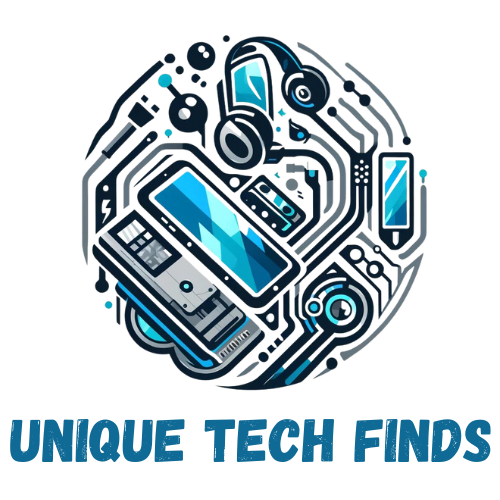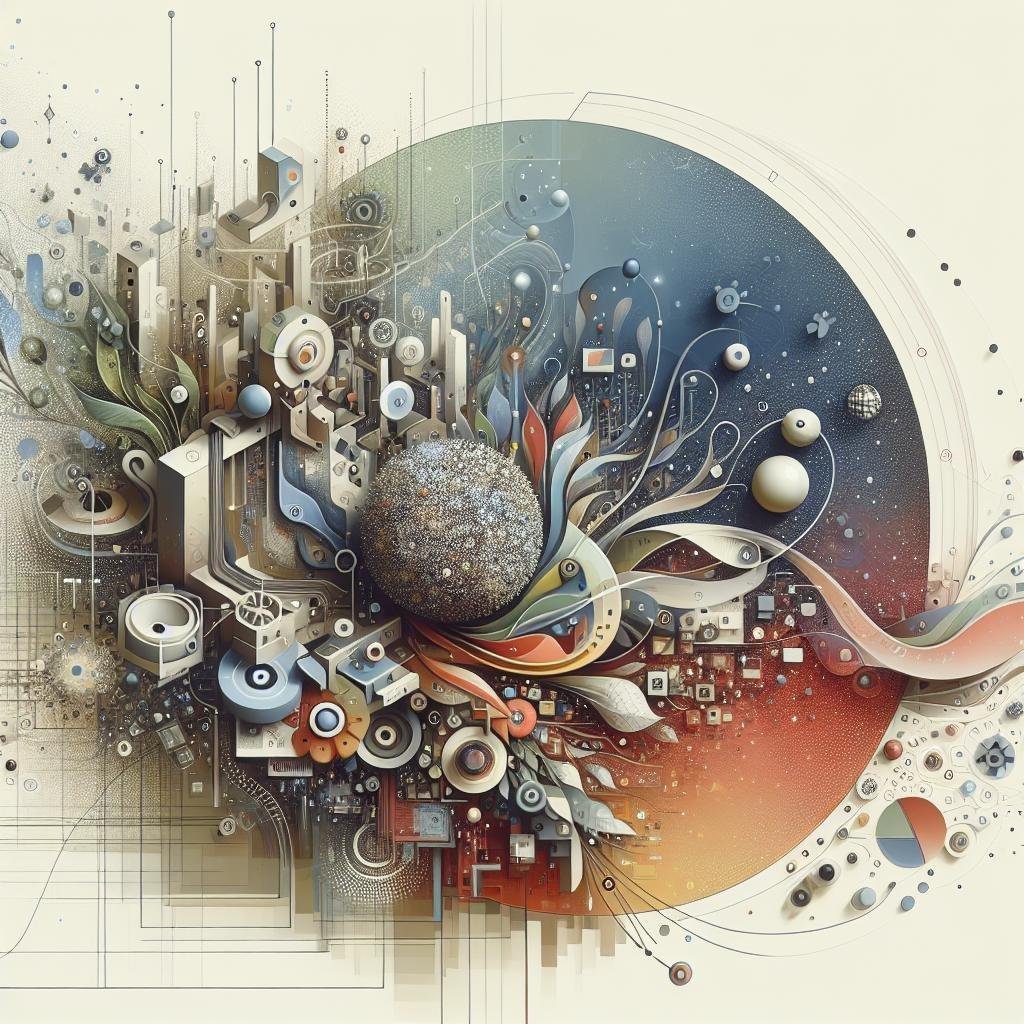In an era defined by rapid technological advancement, our lives are often cluttered with an endless array of gadgets and digital distractions. Smartphones, smartwatches, and an array of connected devices promise convenience and connectivity, yet they can also drown us in a sea of notifications and information overload. Amid this whirlwind of innovation, the principles of minimalism offer a refreshing counterpoint, inviting us to thoughtfully curate our possessions and attention. As we navigate emerging tech trends, embracing minimalism becomes not just a lifestyle choice but a deliberate strategy for reclaiming clarity and purpose in a world brimming with complexity. This article explores practical ways to integrate minimalism into our tech-driven lives, revealing how a simpler approach can lead to greater well-being, focus, and joy in the age of gadgets. Join us as we uncover the art of living meaningfully amidst the noise of modern technology.
Cultivating a Mindful Approach to Digital Consumption
In a world inundated with constant notifications and an overwhelming array of digital options, adopting a more thoughtful approach to how we engage with technology is essential. Embracing minimalism allows us to sift through the noise and focus on what genuinely adds value to our lives. Here are some strategies to help you cultivate a more mindful digital consumption:
- Set Intentional Boundaries: Establish specific times for checking emails or social media to avoid mindless scrolling.
- Limit Your Subscriptions: Regularly review and declutter your digital subscriptions, retaining only those that bring you joy or serve a purpose.
- Practice Digital Detoxes: Schedule regular breaks from screens to reconnect with your surroundings and reflect on your usage habits.
- Engage with Quality Content: Prioritize content that inspires and educates rather than passively consuming entertainment.
One powerful way to solidify this mindful approach is to track your digital habits. Keeping a simple log can reveal surprising insights into your consumption patterns. Consider using a table to visualize your daily screen time and the platforms you engage with the most:
| Day | Screen Time (Hours) | Primary Platforms |
|---|---|---|
| Monday | 4 | Social Media, News |
| Tuesday | 3.5 | Streaming, Emails |
| Wednesday | 2 | Podcasts, Research |
| Thursday | 5 | Games, Social Media |
| Friday | 4 | Streaming, Articles |
Reflecting on this data can help you make more informed choices about your digital presence, ultimately leading to a more streamlined and fulfilling interaction with technology.

Navigating the Balance Between Utility and Clutter
In a world where the latest tech gadget is always at our fingertips, achieving a harmonious environment can feel like a daunting task. To genuinely embrace a minimalist lifestyle, we need to evaluate the role of each device in our daily lives. Considerations such as purpose, functionality, and necessity should guide our decision-making process. Evaluate your tech gadgets through a discerning lens; ask yourself whether they serve a function that enhances your routine or simply contribute to a sea of visual clutter. Devices that integrate multiple functions, such as a smartphone that replaces a camera, music player, and GPS, can effectively reduce clutter while keeping the utility intact.
To further streamline your tech ecosystem, establish a clear framework for upgrading or acquiring new devices. Here are some strategies to consider:
- One In, One Out: For every new gadget you bring into your space, let go of an old one.
- Digital Detox: Schedule regular intervals to evaluate your digital inventory, app subscriptions, and cloud storage.
- Multi-Functional Tools: Look for devices that consolidate functions to minimize your overall collection.
By consciously selecting which gadgets to keep and using tools that prioritize versatility, you can cultivate an environment that champions both efficiency and serenity. Below is a simple comparison table of common tech gadgets and their multi-functional capability:
| Gadget | Primary Function | Multi-Functional Capabilities |
|---|---|---|
| Smartphone | Communication | Camera, GPS, Music Player, Fitness Tracker |
| Tablet | Consumption | Reading, Drawing, Video Conferencing, Gaming |
| Smartwatch | Timekeeping | Health Tracking, Notifications, Navigation |

Streamlining Your Tech Ecosystem for Enhanced Focus
In the fast-paced realm of technological advancement, it’s all too easy to accumulate an array of gadgets that promise to simplify and enhance our lives. However, a cluttered tech ecosystem can lead to distractions, reducing your ability to focus on what truly matters. To create a streamlined environment that fosters productivity, consider implementing the following strategies:
- Assess Your Tools: Regularly evaluate the devices and applications you use. Keep only those that serve a clear purpose in your daily routine.
- Consolidate Services: Look for multifunctional devices and applications that can replace multiple tools.
- Establish Digital Boundaries: Limit notifications and designate specific times for checking devices to avoid constant distractions.
Taking a minimalistic approach doesn’t mean sacrificing functionality; rather, it encourages a deeper connection with the technology you choose to keep. A balanced tech ecosystem nurtures focus and creativity. To visualize this transformation, consider the following table highlighting common gadgets and their streamlined alternatives:
| Device | Streamlined Alternative |
|---|---|
| Smartphone | Basic Phone + Tablet |
| Digital Camera | High-Quality Smartphone Camera |
| Laptop & Desktop | Powerful Tablet with Keyboard |

Embracing Sustainable Choices in a Gadget-Driven World
In a world saturated with the latest tech gadgets, making sustainable choices can feel overwhelming. However, adopting minimalism doesn’t mean forsaking technology entirely; instead, it encourages us to be selective about the devices we bring into our lives. By prioritizing quality over quantity, consumers can focus on acquiring multi-functional gadgets that meet several needs simultaneously. This approach not only declutters our physical space but also reduces electronic waste, which is a significant environmental concern. Consider these strategies:
- Choose eco-friendly brands that emphasize sustainability in their manufacturing processes.
- Opt for refurbished devices that save resources and reduce waste.
- Invest in devices that have a longer life span, rather than trendy, short-lived gadgets.
In achieving a balance between technology and minimalism, it’s essential to evaluate how each device enhances your lifestyle. A great way to visualize this is by using a simple comparison table that highlights essential gadgets alongside their longevity and functionality:
| Gadget | Longevity | Functionality |
|---|---|---|
| Smartphone | 3-5 years | Communication, Photography, Navigation |
| Tablet | 4-6 years | Reading, Browsing, Gaming |
| Smartwatch | 2-4 years | Fitness Tracking, Notifications |
By thoughtfully choosing gadgets that enrich our lives while aligning with the principles of sustainability and minimalism, we can forge a path that reflects both our love for technology and our commitment to the planet. It’s about making intentional and conscious decisions that resonate with our values and lead to a more mindful existence amidst the tech revolution.
Q&A
Q&A: Embracing Minimalism in the Age of Tech Gadgets Amid Emergent Trends
Q1: What is minimalism, and how does it correlate with our current era of technology?
A: Minimalism is the intentional practice of simplifying one’s life by focusing on what truly matters, often achieved by decluttering both physical spaces and mental bandwidth. In today’s fast-paced, gadget-infused world, minimalism acts as a counterbalance, urging individuals to evaluate the necessity of their tech possessions. Rather than succumbing to the allure of every emerging tech trend, minimalism encourages a critical approach to technology consumption—ensuring that what we keep adds value to our lives.
Q2: Why is it essential to adopt a minimalist mindset when it comes to tech gadgets?
A: Adopting a minimalist mindset towards tech gadgets is essential for creating space—both physically and mentally. As technology evolves, it brings a flood of new devices designed to enhance our lives. However, accumulating too many gadgets can lead to clutter, overwhelm, and distraction. Embracing minimalism allows for a clearer focus on tools that genuinely facilitate productivity and connection, fostering a healthier relationship with technology rather than being burdened by it.
Q3: How can one start the journey of embracing minimalism while surrounded by emerging tech?
A: The journey begins with awareness. Start by assessing your current tech possessions and identifying which devices you truly use and need. Consider posing a few reflective questions: Do these gadgets serve a specific purpose? Do they enhance my daily life or contribute to stress? Next, declutter by eliminating or donating items that no longer serve you. when considering new tech acquisitions, focus on quality and multifunctionality over quantity. Opt for versatile devices that streamline your experience and encourage a more intentional engagement with technology.
Q4: Are there specific gadgets that align well with a minimalist philosophy?
A: Yes! There are several gadgets that exemplify minimalism through design and functionality. For instance, a tablet can replace multiple gimmicky devices such as e-readers, laptops, and even gaming consoles, offering a sleek all-in-one solution. Similarly, smart speakers can streamline music, control smart home devices, and provide hands-free access to information. Look for gadgets that are not only aesthetically pleasing but also multifunctional—this way, they align with minimalist principles while still embracing technological advancements.
Q5: How does one maintain a minimalist lifestyle amid the constant influx of new technology?
A: Maintaining a minimalist lifestyle amidst the stream of new technology requires intentionality and discipline. Regularly evaluate your tech use and remain mindful of your consumption habits. Opt for a ‘one-in, one-out’ policy: every time you bring in a new device, consider parting with an old one. Stay informed about tech trends, but remember that not every innovation necessitates your attention or investment. Cultivating a mindful consumption habit—one that prioritizes meaningful connections over material ownership—will help you navigate the tech landscape with a minimalist mindset.
Q6: Can minimalism lead to improved mental well-being in our tech-saturated lives?
A: Absolutely! Embracing minimalism, especially in our technology habits, can lead to clearer mental space and reduced anxiety. By limiting distractions and focusing on what matters most, individuals often experience greater clarity, enhanced productivity, and an overall sense of well-being. When we simplify our tech environments, we create conditions that allow for deeper connections with both our work and personal lives. In a tech-saturated world, minimalism can serve as a trusted guide to reclaiming peace of mind.
Final Thoughts
As we navigate the whirlwind of emerging tech trends, embracing minimalism becomes not just a lifestyle choice but a conscious response to the digital tide that seeks to engulf us. By prioritizing quality over quantity, we reclaim our spaces and our time, allowing us to focus on what truly matters. Remember, minimalism is not about denial or deprivation; it’s about clarity and intention. By curating our belongings and consciously interacting with technology, we can create a harmonious balance between the digital and the tangible.
In a world where the latest gadget often tempts us into excess, let us choose instead to cultivate a sense of freedom in simplicity. As you step forward, reflect on the tools that enrich your life and let go of those that weigh you down. Embrace the beauty of less, and watch how it opens up new avenues for creativity, connection, and mindfulness. In this age of tech, may you find your own minimalist rhythm, shaping a fulfilling existence defined by authenticity rather than accumulation.

